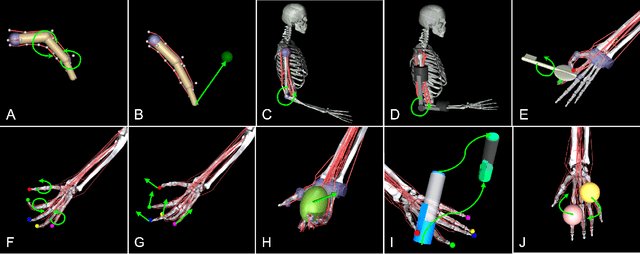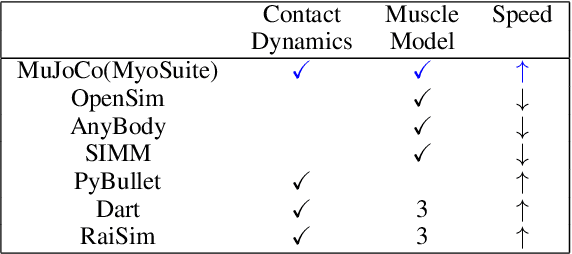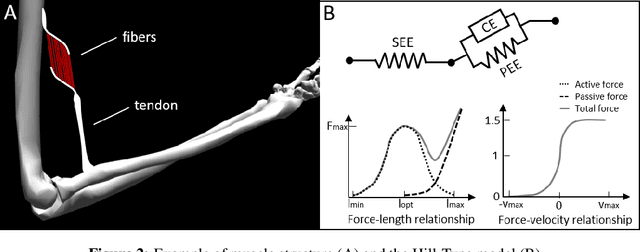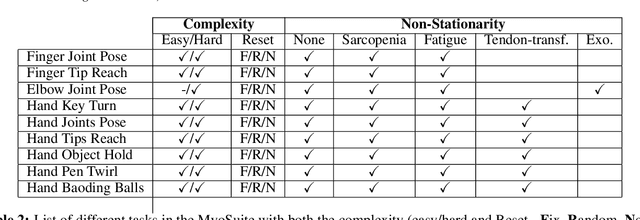MyoSuite -- A contact-rich simulation suite for musculoskeletal motor control
Paper and Code
May 26, 2022



Embodied agents in continuous control domains have had limited exposure to tasks allowing to explore musculoskeletal properties that enable agile and nimble behaviors in biological beings. The sophistication behind neuro-musculoskeletal control can pose new challenges for the motor learning community. At the same time, agents solving complex neural control problems allow impact in fields such as neuro-rehabilitation, as well as collaborative-robotics. Human biomechanics underlies complex multi-joint-multi-actuator musculoskeletal systems. The sensory-motor system relies on a range of sensory-contact rich and proprioceptive inputs that define and condition muscle actuation required to exhibit intelligent behaviors in the physical world. Current frameworks for musculoskeletal control do not support physiological sophistication of the musculoskeletal systems along with physical world interaction capabilities. In addition, they are neither embedded in complex and skillful motor tasks nor are computationally effective and scalable to study large-scale learning paradigms. Here, we present MyoSuite -- a suite of physiologically accurate biomechanical models of elbow, wrist, and hand, with physical contact capabilities, which allow learning of complex and skillful contact-rich real-world tasks. We provide diverse motor-control challenges: from simple postural control to skilled hand-object interactions such as turning a key, twirling a pen, rotating two balls in one hand, etc. By supporting physiological alterations in musculoskeletal geometry (tendon transfer), assistive devices (exoskeleton assistance), and muscle contraction dynamics (muscle fatigue, sarcopenia), we present real-life tasks with temporal changes, thereby exposing realistic non-stationary conditions in our tasks which most continuous control benchmarks lack.
 Add to Chrome
Add to Chrome Add to Firefox
Add to Firefox Add to Edge
Add to Edge